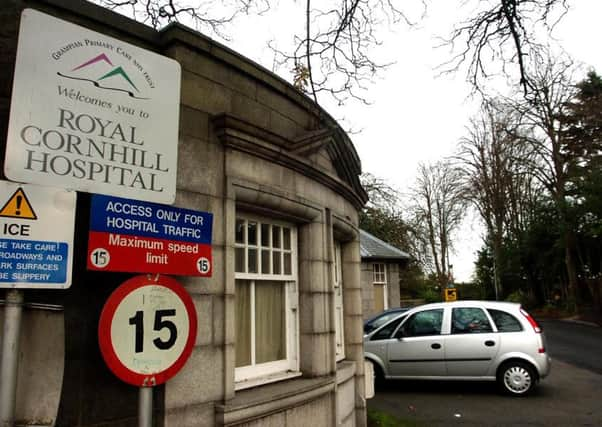Patient walked out of Scottish hospital and killed best friend he thought was the devil


A probe has been launched into how a psychiatric patient was allowed to walk out of a psychiatric hospital two days before brutally killing his best friend, who he believed was the Devil.
David Reid had told family members and professionals about his delusions that “demons” were trying to harm him in the days before he stabbed Mark Johnston more than 120 times in a bloodbath.
Advertisement
Hide AdAdvertisement
Hide AdHe was admitted to Royal Cornhill Hospital in Aberdeen but, despite the warnings, doctors decided the troubled 46-year-old wasn’t ill enough to be detained for urgent treatment.
He phoned his sister less than 48 hours after being discharged to confess that he had stabbed his friend to death in his flat in Broughty Ferry, after “shredding” his jugular vein with a kitchen knife.
Reid was acquitted of murder at the High Court in Livingston last week after the prosecution accepted that he was “not criminally responsible for his actions by reason of mental disorder”.
The court heard he answered the door to police who arrived at his flat in Nursery Road, Broughty Ferry, on 20 October last year covered in blood.
Mr Johnston was lying dead in a large pool of blood on the living room floor with “in excess of 120 stab wounds” all over his body.
Reid told police: “I feel terrible. The Devil told me I had two hours to stab him. I got a knife from the kitchen and sat there.
“He was my only friend. I can’t believe what I’ve done. I stabbed him. What will his family think?”
his lethal attack Reid warned a psychiatric nurse in Dundee that he was “receiving messages from God”.
Advertisement
Hide AdAdvertisement
Hide AdA decision was taken to admit him to hospital and two NHS Tayside staff then escorted him in a taxi to Aberdeen because no psychiatric beds were available locally.
He was able to discharge himself shortly after admission after a consultant decided that he didn’t meet the criteria for compulsory treatment.
Two days later he killed his best friend.
Judge Lady Rae questioned how Reid, who has now been detained in the State Hospital at Carstairs, Lanarkshire had been able to leave the psychiatric unit in Aberdeen.
She said she expected the Crown Office to get a report from the local health board and hold a criminal investigation into the circumstances.
She said: ““There are concerns. It might be there was no failure or blame – there is no evidence for that – but there are concerns.
“I don’t prejudge things, but a man who is sufficiently ill to be accompanied by two members of staff to a psychiatric hospital clearly has a history.
“He’s allowed to leave and two days later this occurs. I’d have thought it should be investigated.”
Advocate depute Brian Robertson told the court: “The Scottish Fatalities Investigation Unit (SFIU) will in due course receive a report from the NHS trust in relation to the decision made. My understanding of the position at present is that it is considered likely that there are criticisms about the actions taken.”
Advertisement
Hide AdAdvertisement
Hide AdConservative mental health spokesman Annie Wells highlighted the fact that Reid had to be taken from Dundee to Aberdeen because not psychiatric beds were available in his home city.
She added: “Its bad enough that there was no capacity to keep him in one of Scotland’s major cities, but the fact he was able to walk free from another unit in this way compounds the series of failings. As a a result a man is dead and another is now likely never to be released.
“An urgent review is needed to find out why these failings occurred and how they can be avoided in future.”
A spokesman for NHS Grampian said it could not discuss individual cases but confirmed it had carried out “adverse event reviews” into the case.
